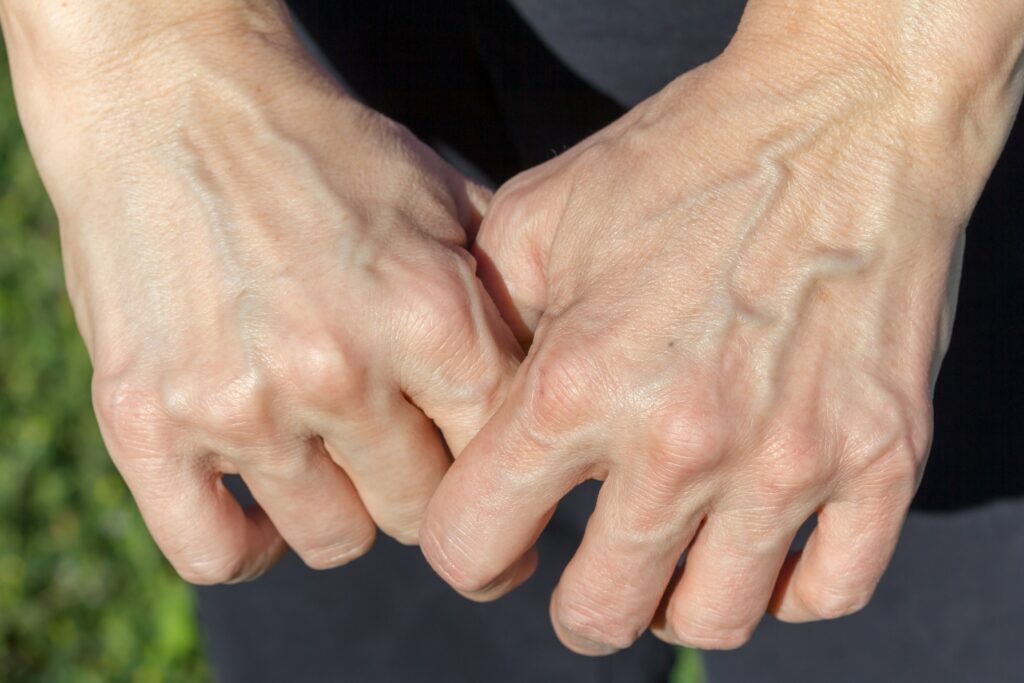There are many, many products marketed as helping prevent, alleviate, or even remove varicose veins. From creams and ointments to oral supplements, the options seem endless – but do any of them actually have merit?
What are Vein Creams and Supplements?
Many people who suffer from varicose veins apply creams or ointments which they believe will treat their condition. According to current medical evidence, however, this is merely a “band-aid” solution to a deeper problem.
For example, Veins Clear is a product developed by Caruso’s Natural Health brand. This Australian-owned family company offers everything from general Nutritional Support to Beauty Supplements. One of their product categories is Heart, Circulation, and Vein Health, with products aimed at addressing cholesterol management, bruising, circulation, fluid retention, cardiac health, and vein health.
Topical vein creams are usually formulated with ingredients including:
• Witch Hazel – traditionally used in western herbal medicine and traditional Native American medicine as an astringent to tighten tissues and anti-inflammatory and to alleviate haemorrhoid symptoms.
• Horse Chestnut Seed, which is used to support healthy blood vessels and relieve bruise pain.
• Magnesium, an essential nutrient.
• Vitamin K is used to reduce bruising and redness.
• Retinol (made from Vitamin A).
• Oral Supplements for veins are usually designed to be taken as one pill per day and may include Vitamin C, Butcher’s Broom extract (a natural steroid), Grape Seed Extract and Hesperidin, which is a bioflavonoid used for blood vessel health.
What Do They Do?
Vein creams and supplements claim to relieve the symptoms of mild varicose and spider veins by:
• Relieving aching, swelling, itching, and pain
• Maintaining blood circulation in the feet and legs
• Promoting collagen formation
• Supporting circulation and blood vessel health
Does medical and scientific research provide any evidence that creams and supplements for varicose veins work?
Can Creams and Vitamins Help Varicose Veins?
Some treatments and prevention strategies for varicose veins work better than others. Some don’t work at all. Understanding the role and limitations of vitamins and topical creams for varicose and spider veins is important – and why the answer to your varicose veins most likely lies in consulting with a vein doctor.
Topical Creams for Varicose Veins are only absorbed as deep as the upper layers of skin.
The skin has three main layers – the topmost is the epidermis, followed by the dermis, and the hypodermis. While they can often be seen through the skin, most spider veins lie in the dermis, and most varicose veins lie beneath the hypodermis.
Medical-grade creams, no matter how well formulated they are, are unable to be absorbed to address issues any deeper than the epidermis. Any positive effects are only surface-deep.
What the creams may help achieve is some temporary relief of swelling, inflammation, and bruising, and they may help some people with some of the cosmetic issues that very mild spider veins cause. These effects are only ever temporary and do not address the underlying issue causing the varicose veins. Furthermore, they can be messy and continuous application is required – this is an ongoing cost.
In some rare cases, topical applications may even increase the risk of bleeding from damaged veins, making them harder to treat.
Vitamins for Varicose Veins can offer some limited benefits, providing the formulation is appropriate and the use of vitamins is ongoing and long-term.
Vitamin supplements can’t treat veins themselves, though they may support optimal health. The right vitamin supplement (including Vitamins B6, B12, C, E & K, as well as minerals niacin, riboflavin, folic acid, thiamine, and CoEnzyme Q10) offers benefits like supporting and maintaining cardiovascular function. They may help reduce clotting and inflammation, as well as strengthen the walls of veins and capillaries. This can be beneficial in the prevention of developing varicose veins; vitamins and minerals will not, however, treat existing varicose veins.
There is currently no medically backed evidence that varicose vein creams work. Supplements may help maintain vein health and assist in preventing varicose veins from developing, but they will not treat existing spider or varicose veins.
Premium Vein Treatments
The right approach to managing spider and varicose veins is to consult with an experienced vein doctor for safe, effective solutions that really do work.
From non-medical approaches to minimally invasive vein treatments, only an expert vein doctor understands the pros and cons of each and can advise the right solution for you.
This may include:
• Compression stockings
• Certain oral medications
• Lifestyle recommendations
• Sclerotherapy
• Microsclerotherapy
• Endovenous laser ablation
Crows Nest Vein Clinic offers premium vein treatments which, rather than temporarily camouflaging the problem in appearance alone and wasting money on such products, actually treat the underlying cause of varicosity to improve not just the appearance of the legs, but also alleviate symptoms and, in most cases, resolve the issue.
Vein Doctor Dr Nicole James delivers an outstanding level of care with empathy and understanding. Our walk-in, walk-out vein treatments require no hospital admission, no general anaesthesia, and virtually no downtime.
Contact us via our online contact form, or call (02) 9906 1555 or email [email protected].




